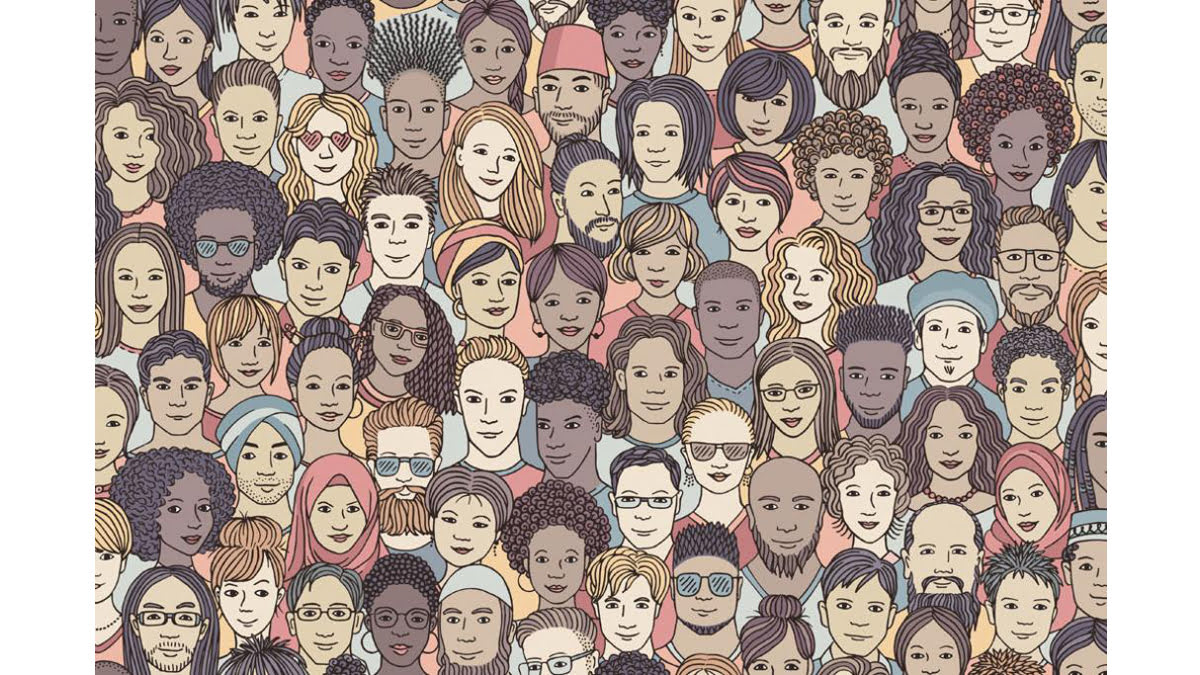
Recent events including, but certainly not limited to, the horrific death of George Floyd at the hands of police officers in Minneapolis has led a push for white people to better educate themselves in understanding the many ways racism appears in our society. In a recent post, GeekDad Jonathan reminded people about the importance of not asking the Black people in our lives to take on the emotional labor of educating us about systematic racism, but to seek out the education for ourselves, and recommended two books: So You Want to Talk About Race? by Ijeoma Oluo and Me and White Supremacy by Layla F. Saad. The National Museum of African American History and Culture with the Smithsonian Institute (NMAAHC) also has another resource to offer in the form of its newly launched web portal, “Talking About Race.”
“Talking About Race” is a project that has been refined and revised since 2014 after many requests for resources on discussing race. It starts off acknowledging that this is not an easy topic, but that the NMAAHC is here with tools to “empower your journey and inspire conversation.”
The very first part you come across is a series of questions about your background in what life experiences have shaped your knowledge and beliefs about race. It then shifts to explaining why talking about race is important and how it impacts everyone.
The main section is then divided up into three areas about who you are and what brings you to the portal. Are you an educator? A parent or caregiver? Someone who committed to equity? This is the part I appreciated the most because as a parent some of the books that are best for self-educating myself may not be the best way for me to educate my children, so having tools that are specifically geared to help me teach my kids is incredibly valuable.
Each of these sections gives an introduction about the goals for that section as well as an explanation of the features you will find. These features include pop-outs or embedded resources. Topics are also divided into sections—like “Let’s Think,” “Let’s Talk,” and “Let’s Act”—that encourage self-reflection, discussions to have with others, and practical actions that you can begin to take. The “Bias” section includes an introduction and general information on bias, videos on the science of bias from Howard J. Ross, and “Immaculate Perception” from Dr. Jerry Kang. The “Let’s Think” area includes questions on our biases, how we have experienced bias, and reflecting on how our biases can impact others. There’s then a video from social psychologist Jennifer L. Eberhardt and a discussion she had on The Daily Show with Trevor Noah. “Let’s Talk” encourages you to discuss why biases become prevalent, how they become norms, and how to stop certain biases from becoming norms; a TED Talk video with Verna Myers that encourages people to face their biases follows. The “Let’s Act” section includes activities for parents to think about what negative biases their kids might be susceptible too and how to navigate them away from this as well as other actions in recognizing and countering our own harmful biases.
There are a lot of different topics too. The parenting section also links to topics such as “Being Antiracist,” “Community Building,” “Self-Care,” “Race and Racial Identity,” “Social Identities and Systems of Oppression,” “Whiteness,” and “Historical Foundations of Race.”
I felt like the web portal was a really good first step in the self-educating journey and the questions and self-reflection really helped to make connections. Following up the learning and reflecting came the action sections, which I felt really had that direct guidance on what an individual person can do to start making changes. Overall, it found a good balance between educating and guiding the next actions you can take. Since the sections were broken up so neatly, it made it easier to approach one concept at a time and really spend your time with it. If self-educating yourself is feeling overwhelming, I truly believe this is a good place to begin. You can find the “Talking About Race” web portal here.

To my mind, there is no place for any discrimination, especially race, in the 21st century. It’s stupid to define people on white and black; the difference is only in culture, which must be taught in schools and colleges. I’ve used https://samplius.com/free-essay-examples/culture/ during my work on culture research. To my strong belief and according to the essay examples, if we teach children to be tolerant and respective for each other, there will be no problems in future.
Thank you for sharing this. Modern society tries to follow the rules of multiculturalism in communication. However, I noticed long ago that people try to create families and make friends with those who are closest to them. There are many signs. But you can see for yourself by reading about special dating sites – https://bestondating.com/review/ebonyflirt/ I am not trying to give any assessment to this. I believe that a person’s choice should be free and bring comfort and pleasure.